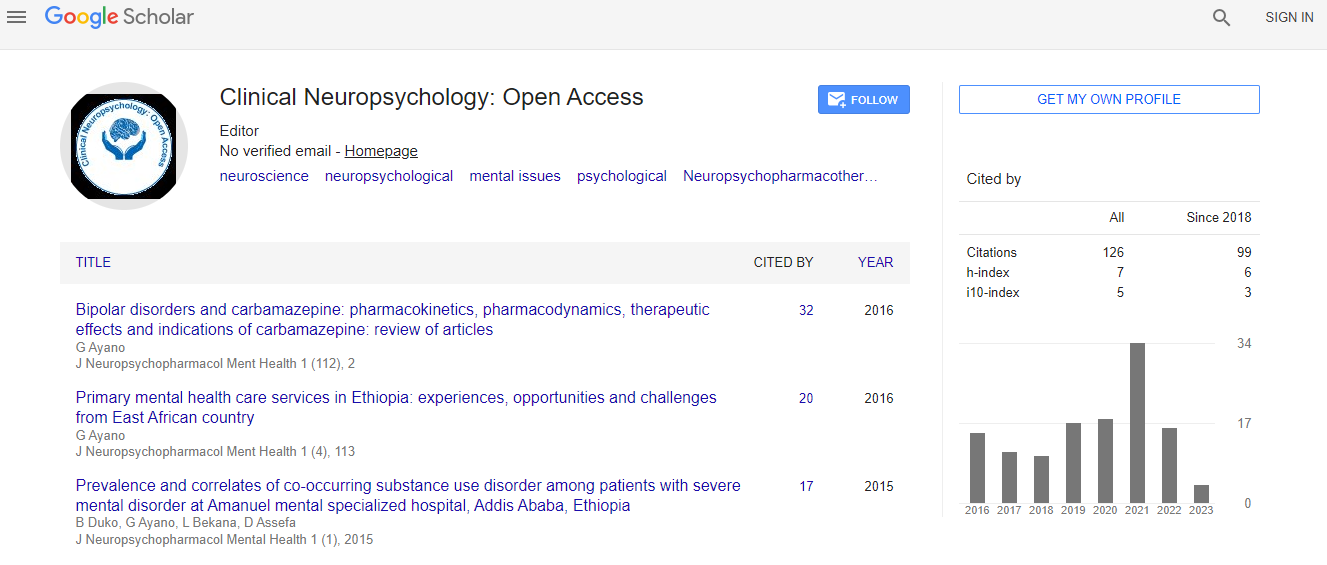Our Group organises 3000+ Global Events every year across USA, Europe & Asia with support from 1000 more scientific Societies and Publishes 700+ ������ Journals which contains over 50000 eminent personalities, reputed scientists as editorial board members.
������ Journals gaining more Readers and Citations
700 Journals and 15,000,000 Readers Each Journal is getting 25,000+ Readers
Citations : 141
Indexed In
- Google Scholar
- RefSeek
- Hamdard University
- EBSCO A-Z
- OCLC- WorldCat
Useful Links
Recommended Journals
Related Subjects
Share This Page
The STOMP in children and adolescents with learning disabilities in South Wales, UK
8th Global Experts Meeting on Advances in Neurology and Neuropsychiatry
Amani Hassan and Collins Ann
Cwm Taf Health Board, UK
ScientificTracks Abstracts: ClinNeuropsychol
DOI:
Abstract
Background: Stopping Over Medication of People (STOMP) with a learning disability, autism or both is a project in the UK. It looks at people being given psychotropic medicine because their behavior is seen as challenging. People with a learning disability, autism or both are more likely to be given these medicines than other people without. These medicines can be good for some people with mental illness or challenging behavior, but have side effects such as weight gain and tiredness so the less people need this medicine, the better. Aim: Our service is a tertiary service specializing in Child and Adolescent Mental Health Service (CAMHS) Learning Disability (LD) in South Wales. It started in 2012 and covers 3 Health Boards. This project assessed how suitable the STOMP guidelines are for our patients. We also thought about how the STOMP guideline might need to change for children and adolescents. Methods: We looked at hospital notes of all 117 patients with mild to severe learning disabilities. Their age, gender, diagnosis and what medicine they were taking were written down. When patients were taking psychotropic medicine, and if we were following all of the STOMP guidelines was also recorded. If we were not doing what STOMP suggested, notes were explored to find a reason. Results: Positive Findings: (1) Clear reasons for prescribing were found in (98.39%). (2) Psycho educating patients and their families with regard to risk and benefits (95.08%). (3) Regular follow ups (96.77%). (4) Care plans considered if medication was still required (66.13%). Negative Findings: (1) Low percentage with regard to assessing capacity and gaining formal consent (11.29%). (2) The service was rated low at explaining that a medicine is ‘off-label’ (4.55%). Conclusion: CAMHS focuses their work on the whole family. Consent is gained from discussion with the family as a whole. This needs to be formalized, as STOMP recommends. Capacity assessments are only relevant for over 16 year olds. Moving forward CAMHS LD specific STOMP guidelines should be developed.Biography
Amani Hassan is a Consultant Child and Adolescent Learning Disability Psychiatrist covering three local health boards in South Wales since 2012. She is also the Chair C&A Faculty for Royal College of Psychiatrists in Wales, an Honorary Academic Associate and Researcher at Cardiff University and the Training Program Director for CAMHS, Wales Deanery. Her previous post was Consultant Child and Adolescent Psychiatrist during 2010-2012 with Cwm Taf University Health Board and was an Honorary QNIC Lead Reviewer for The Royal College of Psychiatrists during 2010-2011. She has gained other postgraduate qualifications following her MBBS in 1989. She has a Diploma in Psychological Medicine, Cardiff University, MSc in Medical Law (LLM), Cardiff University and MSc in Clinical Neuropsychiatry, Birmingham University. She became a Fellow of The Royal College of Psychiatrists in 2017. Her interests are research, publication and teaching. She is a Member of IASSID and CAIDPN.
E-mail: amaniosmanh@gmail.com

